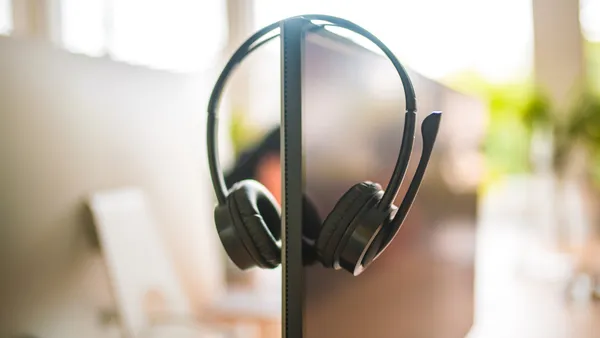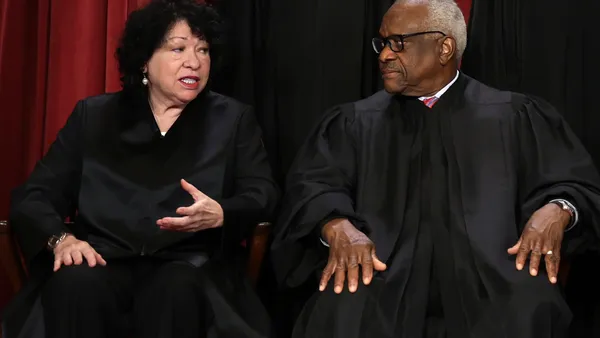Dive Brief:
- Nearly 100% of hearing Americans said they would "absolutely and/or likely" recommend a deaf individual for a job, according to a poll commissioned by the Communication Service for the Deaf (CSD). More than two-thirds of respondents said they believe deaf individuals offer different perspectives that are beneficial in the workplace.
- But just 30% of survey respondents said that a deaf person could "absolutely" perform their own job equally well or better. Only 38% said a deaf individual would be "absolutely" as equally likely to succeed in life as a hearing person.
- CSD said that bias against deaf individuals can surface even when they're in positions of authority, despite proof of their capability. For example, the survey found that among hearing people, 43% would "absolutely" vote for a deaf U.S. presidential candidate if his or her beliefs aligned with their own. Almost half said a deaf person is "absolutely" capable of being CEO or president of Fortune 500 company. And 80% to 90% think a deaf individual could perform a range of IT jobs, while 50% less have confidence that he or she could work as truck drivers, lifeguards or pilots.
Dive Insight:
The U.S. Bureau of Labor Statistics has reported low unemployment rates for the past several months, and these figures include lower unemployment rates for Americans with disabilities. In February, the employment rate for workers with disabilities was just 19.1%; jobless rates for individuals with disabilities are higher across all educational levels than for those without disabilities.
It's unclear how much of the hiring disparity is due to bias, but the CSD survey results indicate show that its involvement seems likely. Inherent biases present challenges for employers looking to expand diversity and inclusion efforts to hire, engage and retain workers with disabilities. At an October conference, corporate leaders laid out strategies to improve inclusion for individuals with disabilities, recommending employers prioritize accessibility, flexibility and representation. At Starbucks, which participated in the conference, some baristas who identify as deaf wear aprons that sport the company's logo spelled out in American Sign Language. The idea came from a deaf employee who wanted to help workers and customers better connect.
It's worth noting, too, that the National Organization on Disability has guidelines to help employers and HR professionals interact with employees of all abilities. Experts recommended hearing persons tap the shoulder of someone with a hearing impairment to get his or her attention before looking them in the eye and speaking clearly, keeping the hands away from the mouth while talking. Moreover, if a deaf individual works with an interpreter, the person speaking should still look at the person he or she is speaking to, rather than directing his or her attention at the interpreter, the group suggests.
Employers also must remember that the Americans with Disabilities Act prohibits discrimination against both applicants and employees with disabilities. It also requires employers to provide reasonable accommodations to workers to enable them to perform the essential duties of a job, as long as there's no undue hardship to the organization.













